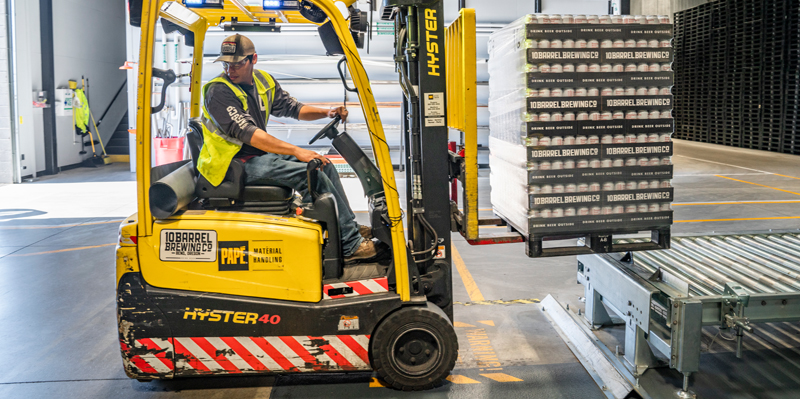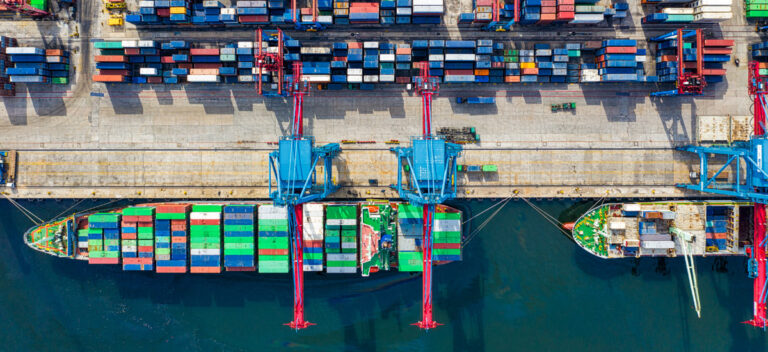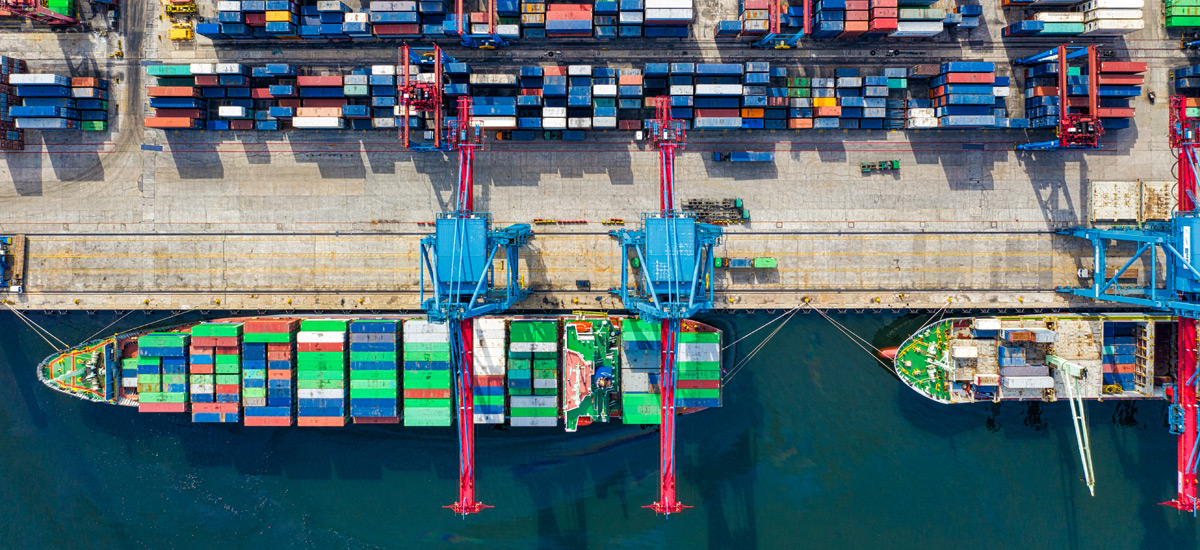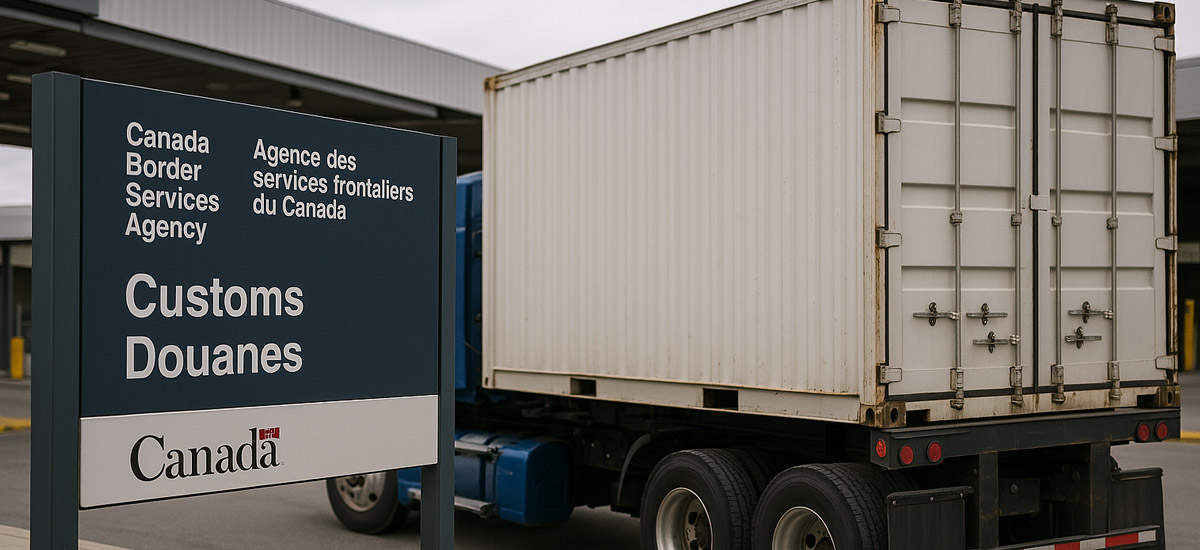Whether you’re a domestic importer or a foreign entity, navigating the constantly evolving import requirements in Canada can be difficult. That’s why we’ve developed a comprehensive guide on navigating the Canada Border Services Agency’s CARM (CBSA Accounts Revenue and Management) initiative and the crucial role of Release Prior to Payment (RPP) Bonds. In this article, we will delve into the details of CARM and explore how RPP bonds can streamline and simplify the import process for your business.
Understanding CARM
CARM, short for CBSA Accounts Revenue and Management, is a multi-year initiative undertaken by the CBSA to modernize and streamline the import process for commercial goods into Canada. As an importer, it is vital to stay informed about the latest developments in CARM, as it will have a significant impact on your operations and compliance requirements.
You can read a complete overview of CBSA’s CARM project directly on their website here.
Canada Border Services Agency CARM Security Requirements
Under the existing regulations, importers and licensed customs brokers have various options for providing customs tax and duties security. These options include cash, certified cheques, money orders, transferrable bonds issued by the Government of Canada, or RPP surety bonds. Understanding the pros and cons of each option is essential in determining the most suitable approach for your business.
When available to you, it is typically most beneficial to leverage a surety bond rather than tying up cash or other capital from your business. The 2 types of bonds applicable to CARM are:
Both bonds serve the same purpose and are Customs & Excise Bonds; however, they have different wordings depending on if your business is domiciled in Canada or abroad. As of May 2023, RPP Bonds are on a D120 Bond Form and Non-Resident GST Bonds are utilizing the GST114 Bond Form – both of these are subject to change come October 2023.

Release Prior to Payment RPP Bonds for Importers
What is a Surety Bond?
Surety bonds are a valuable tool used to ensure the fulfillment of obligations under contracts or statutes. Unlike insurance policies, surety bonds function as a form of credit rather than protection against risk. These bonds are carefully underwritten by a Surety, who assesses the creditworthiness of the applicant before deciding to issue the bond. In return, the Surety often requires an indemnity agreement from the applicant, outlining their commitment to reimburse the Surety in case a claim is made against the bond.
When a person or entity enters into a contractual or statutory agreement, a surety bond provides a financial guarantee to the obligee (the party receiving the commitment). It offers recourse in situations where the obligor (the party undertaking the obligation) fails to meet their agreed-upon responsibilities. The Surety steps in to ensure that the obligee is compensated for any losses incurred due to the obligor’s non-performance.
So, what does this mean for importers and Release Prior to Payment (RPP) Bonds?
The Importance & Benefits of RPP Bonds
Release Prior to Payment (RPP) bonds play a central role in the CARM initiative. These bonds serve as a financial guarantee to the CBSA, ensuring payment of duties, taxes, and other amounts owed for imported goods. With an RPP bond in place, importers can benefit from advantages such as obtaining the release of goods before paying duties and taxes, deferring accounting for goods, and deferring payment of duties and taxes.
RPP Bonds offer importers several advantages compared to other forms of security. Unlike cash, RPP Bonds do not tie up your valuable financial resources, allowing you to allocate capital more efficiently. Moreover, RPP Bonds are cost-effective, with premiums typically lower than other forms of credit, such as letters of credit.
The current minimums for the value of an RPP Bond for CBSA are $5,000; however, this is slated to increase to $25,000 come October 2023 (subject to change based on CBSA release details). The cost of these bonds can start as low as $375 per year, but will change based on bond value and your corporate financial position.
Our team of experts can guide you through the process of obtaining RPP bonds and help you assess the cost-effectiveness and benefits for your specific business needs. Don’t hesitate to contact us today!
Get in touch with us to discuss your Release Prior to Payment (RPP) Bond Requirements.
Preparing for RPP Security & Other CARM Updates
To ensure a seamless transition to the new RPP security requirements, it is essential to be proactive. Start by obtaining your business number from the CBSA and opening import-export RM accounts. Set up your CARM Client Portal user account and register for upcoming CARM Client Portal Onboarding webinars. Appoint dedicated employees as your business account manager and program account manager to facilitate the process.
Check out CBSA’s one-page CARM overview document here.
With the CARM initiative set to revolutionize the import process, understanding RPP bonds and staying informed about the changes is crucial for importers.
Bond Connect is here to support you throughout this journey, providing expert guidance and ensuring you are well-equipped to navigate the evolving landscape of CARM and RPP bonds. Let us be your trusted partner in simplifying the complexities of surety bonds and maximizing your import operations’ efficiency and compliance.






